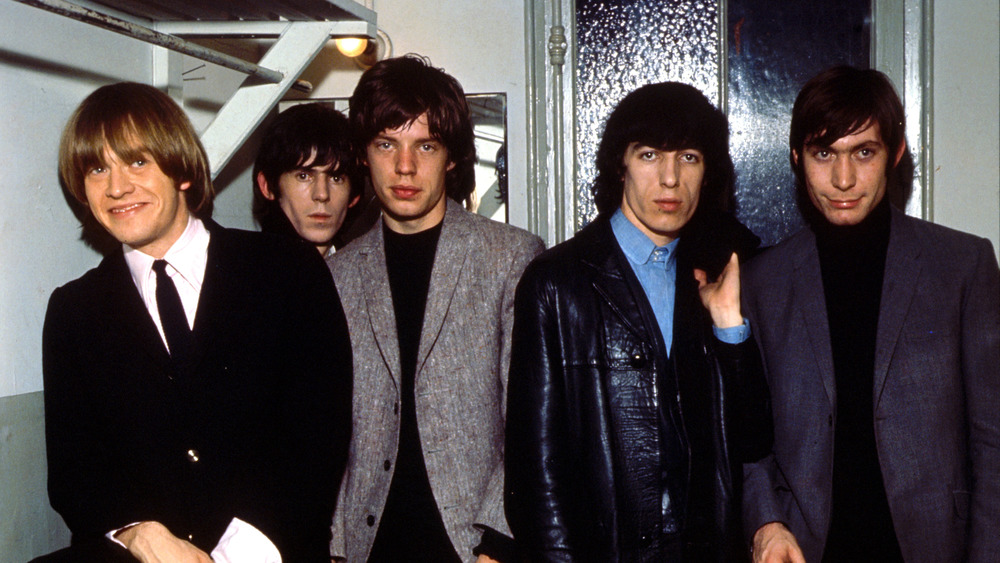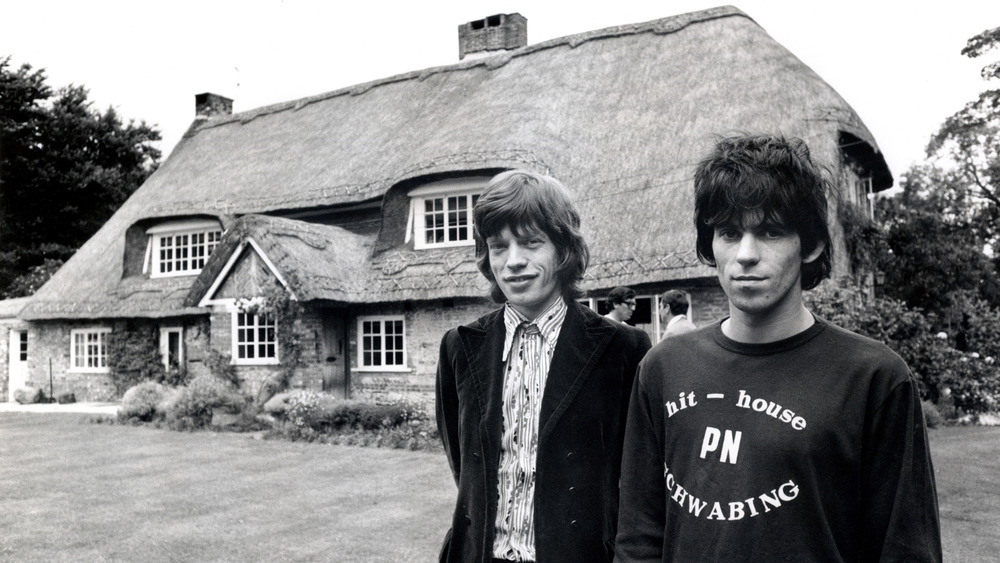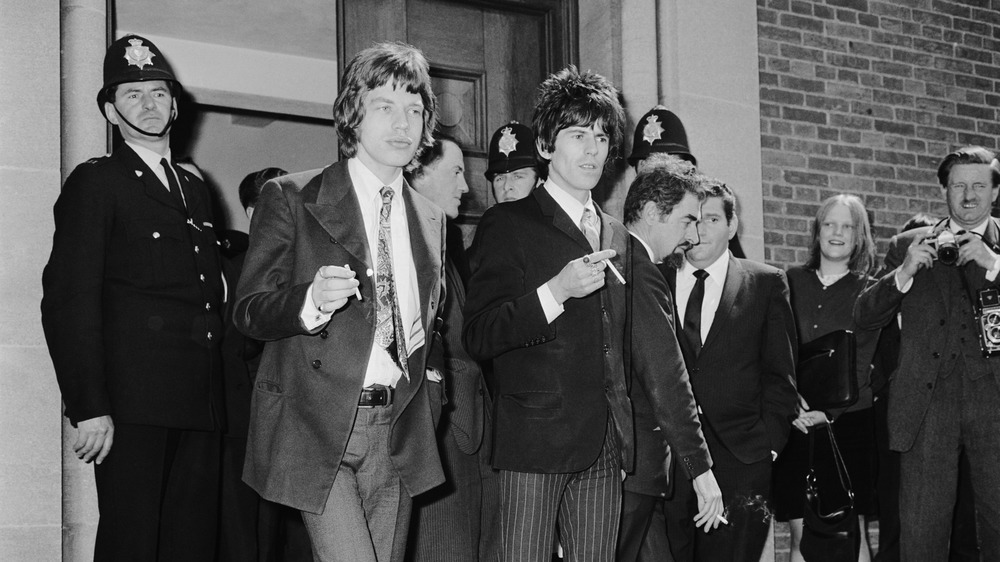A Look Into The Rolling Stones' 1967 Drug Bust
The name "The Rolling Stones" has become synonymous with the fast and loose rock 'n' roll lifestyle, and with good reason. This is a band that has had more drugs than most of us have had hot dinners, and apart from the tragic death "by misadventure" of multi-instrumentalist and founding member Brian Jones in 1969, its members have lived to tell the tale, still turning out music and selling out stadiums after six decades.
But the truth is that it hasn't all been an easy ride, and the Rolling Stones have found themselves in deep water on numerous occasions for their freewheeling and debauched lifestyles. It's worth remembering how different the world was half a century ago: Even clean acts like the Monkees and the Beatles (though they didn't remain clean for long) were vilified for their unconventional hairstyles (a young David Bowie even started a tongue-in-cheek campaign highlighting the plight of long-haired men), while even instrumental music, such as Link Wray's "Rumble," was banned by the censors of the day. It's no wonder the conservative society of the time found the antics of the Rolling Stones shocking and that their penchant for hard recreational drugs often saw them on the wrong side of the law.
Ultimate Classic Rock lists a total of 11 incidents when the Rolling Stones have been arrested, mostly on drugs charges. But one incident stands above all others: a police raid which is now known as the "Redlands Bust."
The Redlands Drug Bust, 1967
The Rolling Stones were already hugely popular, rich, and famous in 1967, so much so that guitarist Keith Richards had already bought himself a sprawling estate in the English county of West Sussex, according to NME. The mansion, Redlands, was to be the site of one of the most infamous incidents in the Stones' history.
The bust was the climax of a long-running campaign against the Rolling Stones and rock stars in general by the famously sensationalist British newspapers, who, throughout the '60s, had continually filled columns with lurid accounts of the rockers' not-so-secret drug use, scandalizing swathes of the British public in the process. Historians of the Western world's war on drugs, such as Peter Walsh, have argued that an "unholy alliance" between the tabloids and the British police led to the excessive pursuit of celebrity drug users, with the intention of making examples of famous names like the Rolling Stones.
An 18-strong police squad raided Redlands on Sunday, February 12, after a tip-off about a drug party from Richards' own chauffeur, according to The Guardian. Though no arrests were made at the time, lead singer Mick Jagger, Richards, and friend of the band Robert Fraser were all later taken into custody on drug possession charges.
The aftermath of the Rolling Stones' drug bust
The British press had a field day. No only were drugs involved, but rumors spread that the singer Marianne Faithfull, who was Jagger's girlfriend at the time, was found naked by police when they entered Richards' mansion. Some of the papers even concocted a story about Jagger and Faithfull being caught by police in a compromising position with a Mars bar, although there has never been any evidence for this, Snopes confirms. The more prosaic account goes that Faithfull had just gotten out of the shower when the police arrived.
Jagger and Richards were put on trial, with Jagger facing three months in prison and Richards, as the property owner, a whole year, according to The Independent. However, the harsh potential sentences caused a backlash. A huge popular campaign took shape, with bands such as The Who putting out statements and cover versions of Rolling Stones tracks in solidarity, per NME. Some unexpected allies appeared in broadsheet newspapers, such as Lord William Rees-Mogg, who famously asked in The Times, "Who breaks a butterfly on a wheel?" According to The Independent, Rees-Mogg argued: "There must remain a suspicion in this case that Mr Jagger received a more severe sentence than would have been thought proper for any purely anonymous young man."
Jagger and Richards were released after a day behind bars. According to Rolling Stone, Richards later claimed: "The judge managed to turn me into some folk hero overnight. I've been playing up to it ever since."


